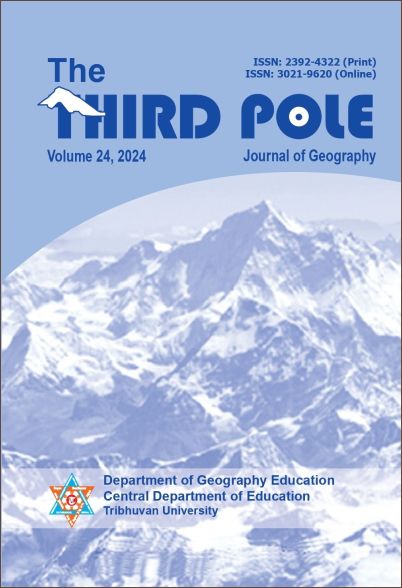Contemporary Nepal-India Relations: From Constitution Proclamation to Cartographic Dispute
DOI:
https://doi.org/10.3126/ttp.v24i1.73376Keywords:
claim and counter claim, cartographic dispute, discontenment, Nepal-India relationsAbstract
This paper explores the reasons behind Indian dissatisfaction with Nepal's 2015 federal constitution and the cartographic controversy, focusing on contemporary Nepal-India relations. Nepal and India's shared history, culture, and geography are strained by territorial disputes over Kalapani, Lipulekh, and Limpiyadhura, causing geopolitical strains and diplomatic standoffs. The ongoing territorial dispute significantly impacts political, economic, and social relations in South Asia, potentially affecting regional stability. The data has been gathered from systematic reviews of articles published on this theme, utilizing abstracts, keywords, Google, and e-resource searches. The author has utilized various methods, including desk work, online interviews, YouTube videos, archived opinions, and descriptive and analytical data interpretation, to gather the necessary information. The findings reveals that the Sugauli Treaty established a stable border between Nepal and the Indian states of West Bengal, Bihar, Uttar Pradesh, and Uttarakhand, covering over 1850 kilometers. About ten years ago, tension between Nepal and India arose due to the Indian political map updated in November 2019, which included Nepal's territories in Lipulekh, Limpiyadhura, and Kalapani. India's dissatisfaction with Nepal's federal constitution, excluding a few Madhesh-centric groups, is disrespectful to the entire sovereign Nepali citizens and the Nepalese Constituent Assembly. This issue is crucial for developing policies that foster peaceful coexistence and mutual respect for regional sovereignty. The focus of the article is to address the facts as well as the rumors underlying Nepal-India relations in regard to events and actions that have occurred in the last ten years.




